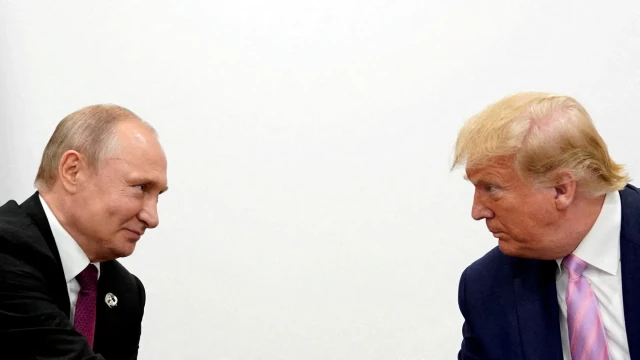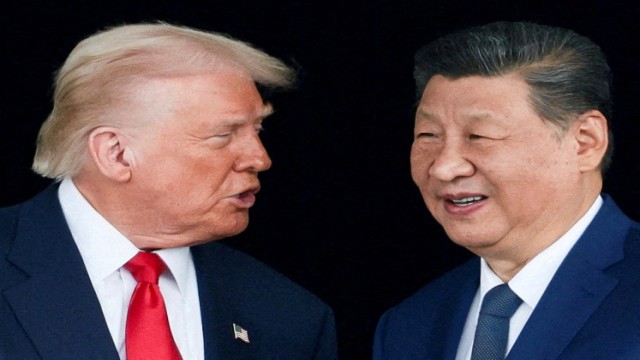Washington, April 9 (V7N) – A new poll published by the Pew Research Center on Tuesday reveals that most Americans hold negative or uncertain views of President Donald Trump's foreign policy decisions, with significant opposition to key actions taken by his administration. The poll, which comes nearly three months into Trump's second term, provides a snapshot of how the American public is reacting to his unconventional approach to international relations.
Trump's foreign policy has been marked by dramatic shifts from the traditional approach of his predecessors, particularly former President Joe Biden. Some of the major moves he has made include withdrawing the U.S. from international agreements like the Paris Climate Accord, ending U.S. participation in the World Health Organization (WHO), and cutting many foreign aid programs. Trump has also sought closer relations with Russia, pursued tariffs on U.S. trading partners, and proposed taking control of foreign territories such as Greenland and the Gaza Strip.
Here are some of the findings from the Pew Research Center survey:
1. World Health Organization and Climate Agreement
-
Disapproval of Trump's Exit from WHO and Paris Climate Agreement: A majority of Americans disapprove of Trump’s decisions to withdraw from the World Health Organization (WHO) and the Paris Climate Agreement. Specifically, 45% of Americans disapprove of the WHO exit, compared to 35% who approve, while 46% disapprove of leaving the Paris Climate Accord, compared to 32% who approve.
2. Russia-Ukraine Conflict
-
Favoring Russia in the Ukraine Conflict: In regards to Trump's stance on the war in Ukraine, a plurality of Americans (43%) believe that Trump is "favoring Russia too much" in his approach to ending the ongoing conflict. Only 31% believe that he is handling the conflict fairly, and 22% of those surveyed were unsure.
3. Middle East and Israel-Palestine Conflict
-
Mixed Opinion on Middle East Stance: Americans were divided on whether Trump is being fair in the Israeli-Palestinian conflict. About 31% of respondents believe Trump favors Israel too much, while 29% think he favors Palestinians, and 37% were unsure.
4. Tariffs on China
-
Negative Opinion of Tariffs on China: A significant portion of the American public (52%) believes that Trump’s tariffs on China will have a negative impact on the U.S., while 53% think these tariffs will harm them personally. Only a small minority of Americans believe that the tariffs will have positive effects on the economy or on their personal lives.
5. Proposals to Take Over Foreign Territories
-
Opposition to U.S. Control Over Greenland and Gaza: Trump's proposal to take over foreign territories has met with strong opposition. A majority (53%) of Americans are against the U.S. taking control of Greenland, while 62% oppose the idea of the U.S. taking over Gaza. Only 23% support U.S. control of Greenland, and 15% support control of Gaza.
6. Generational Differences
-
Older Adults More Supportive: The survey also revealed that older adults (ages 50 and up) are more likely to approve of Trump's foreign policy than younger Americans, who tend to express more disapproval.
The survey was conducted between March 24 and March 30, with 3,605 U.S. adults participating. The margin of error for the poll is plus or minus 1.9 percentage points, and the results were weighted to be representative of the U.S. adult population in terms of gender, race, ethnicity, partisan affiliation, and other factors.
This poll is one of the first comprehensive assessments of how Americans are reacting to Trump’s international policies during his second term. It comes at a time when the president is facing increasing criticism for his handling of foreign affairs, particularly with regards to his economic and diplomatic strategies, including trade relations and international conflicts.
Public opinion is divided, and while Trump has maintained a core group of supporters who back his unorthodox approach to foreign policy, this survey shows that a significant portion of the American public remains skeptical or opposed to many of his actions on the global stage.
END/WD/SMA/






























Comment: